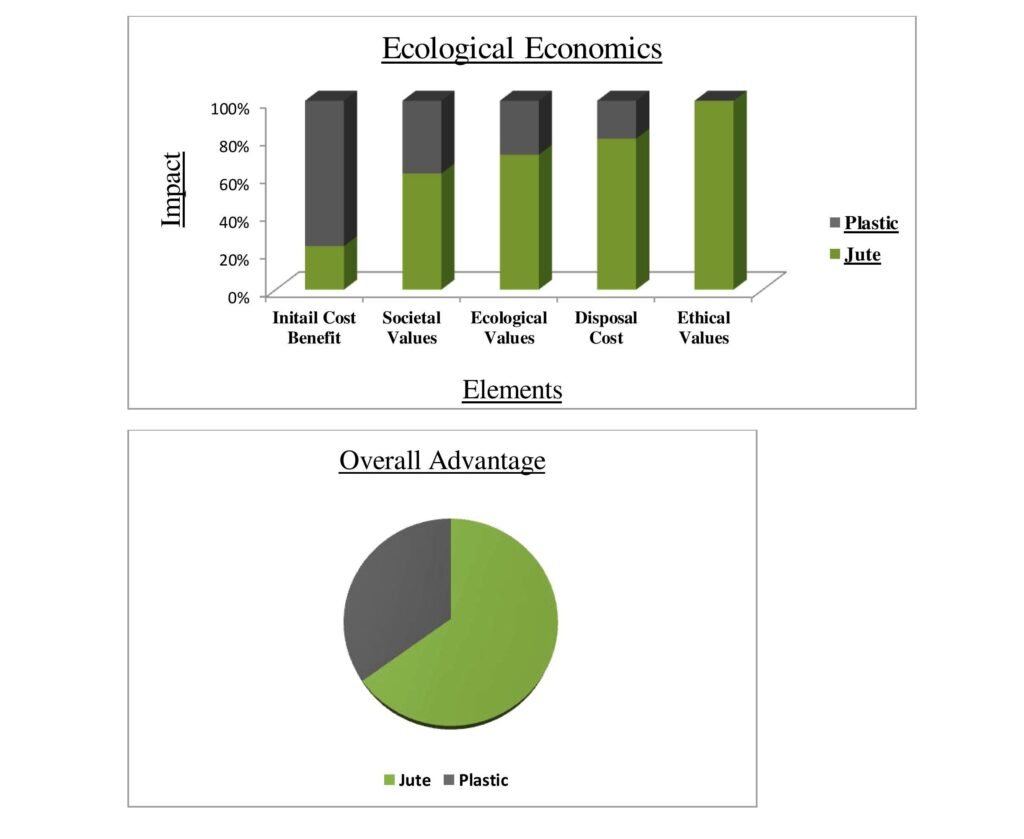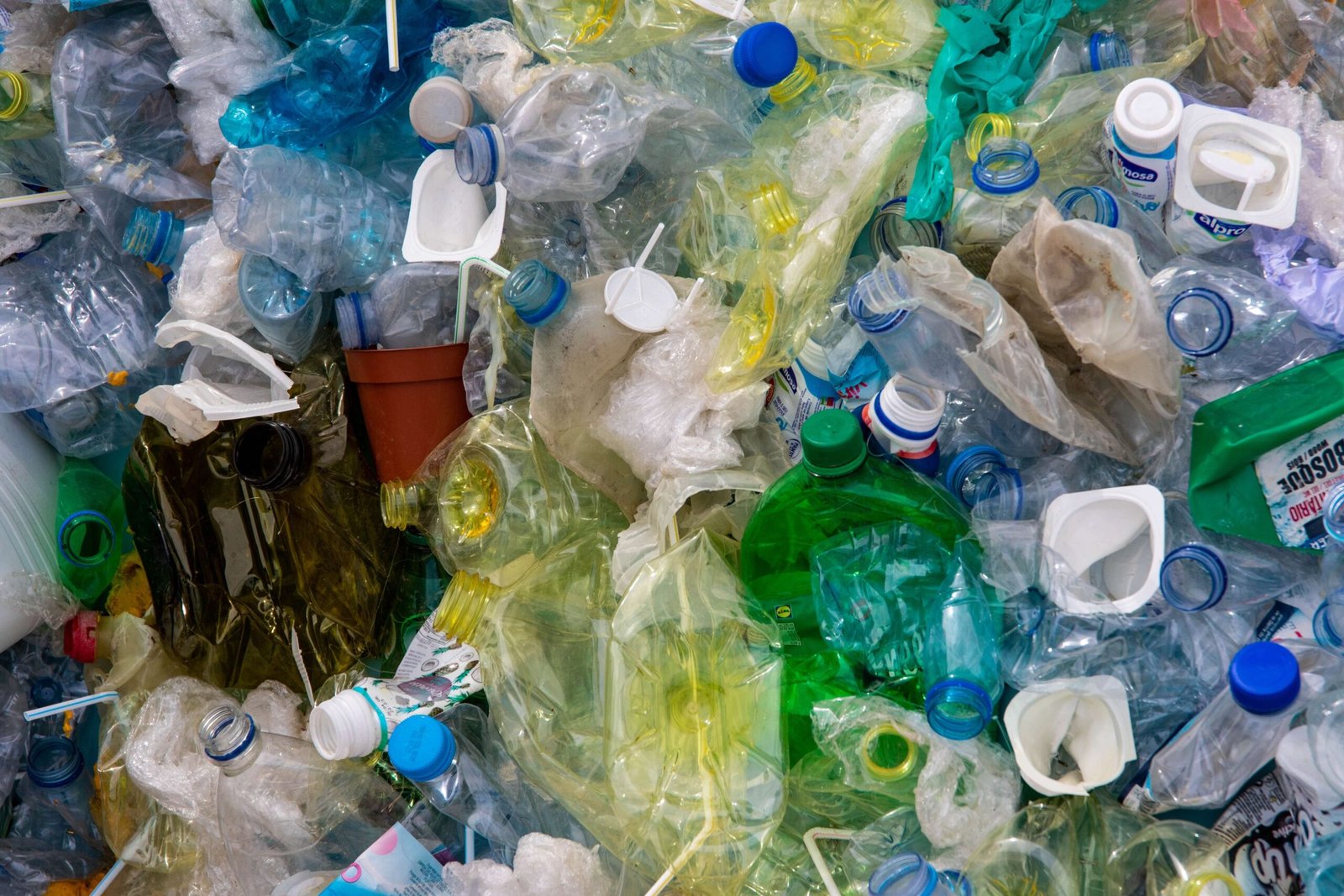It is a time of global warming, pollution, species extinction and race for survival into a healthier and greener world. Biodegradable, recyclable products are a boon for our environment now. It increases value of life and eventually benefits ecological economics.
Ecological economics is a division under the broad concept of economics. This highlights the intertwined relation within various functions of nature and is advancement between economy and environment. While we tried to categorize jute according to its ecological economic stature, few amazing statistics caught our attention.
- Initial cost benefit: If we put into comparison the initial manufacturing as well as marketing cost of plastic and jute, the cost of jute may seem higher. The assumptive ration is 3:10 for plastic and jute respectively. But there is more to it in a long run.
- Disposal Cost: Disposal of plastic is a hell of a troublesome and expensive affair. Lump sum amount of money is dispensed into it. A survey found that a particular nation requires 11 billion US dollars yearly to get rid of only non-recyclable plastics. On the other hand, jute and its by products hardly requires any financial assistance for its disposal. Furthermore jute by products can be recycled or reused in various spheres.
- Societal values: Every product impacts the society at some level. Even plastic products with such overwhelming side effects, have few socio-economic benefits. Plastic industry provides huge number of employment that directly affects the economy of a country. Moreover it is easy to manufacture and transport. These attributes benefit business. Jute also have all these benefits. But unlike plastic, jute has no particular side effect to mention of.
- Ecological values: Now here comes the biggest threat of the non recyclable and non biodegradable industries. They possesses a great threat to our environment in the form of water pollutant, soil pollutant, air pollutant, health hazard. These hazards have already entered our food chain through different sources in day to day life. The danger is that these products are acting like a camouflage of being cheap, beautiful and multipurpose to a certain incautious and needy people.
We have used the following data sources to evaluate the ecological values of jute :
- 1 hector of Jute plantation can absorb 15 tonnes of carbon-dioxide (CO2). And release 11 tonnes of oxygen. Whereas Plastic don’t have any such help. Moreover its production emits 30gm of Co2 on each ounce.
- Only 40% of the plastic products are properly recyclable. That number is also limited. Whereas any jute product is 100% recyclable.
- Plastic takes around 400 years to 500 years to degrade. Jute decays completely within 1.5 years to 2 years.
- Ethical values: We are all responsible to our society and our future generation. Marketing any product without following ethical norms should be unacceptable. Plastic products are disgracing such norms continuously. It is harming the nature, our health and destroying the environmental harmony. Thus we should promote products that are from the nature, for the nature and goes into the nature. Jute fits in appropriately.
We don’t aim to label jute as the cheapest alternative but the most sustainable one.
Here we present a simple comparative graphical illustration to make our viewpoints more clear.


